
Culture
18:43, 10-Sep-2017
Myanmar's women seek refuge in China through marriage
CGTN
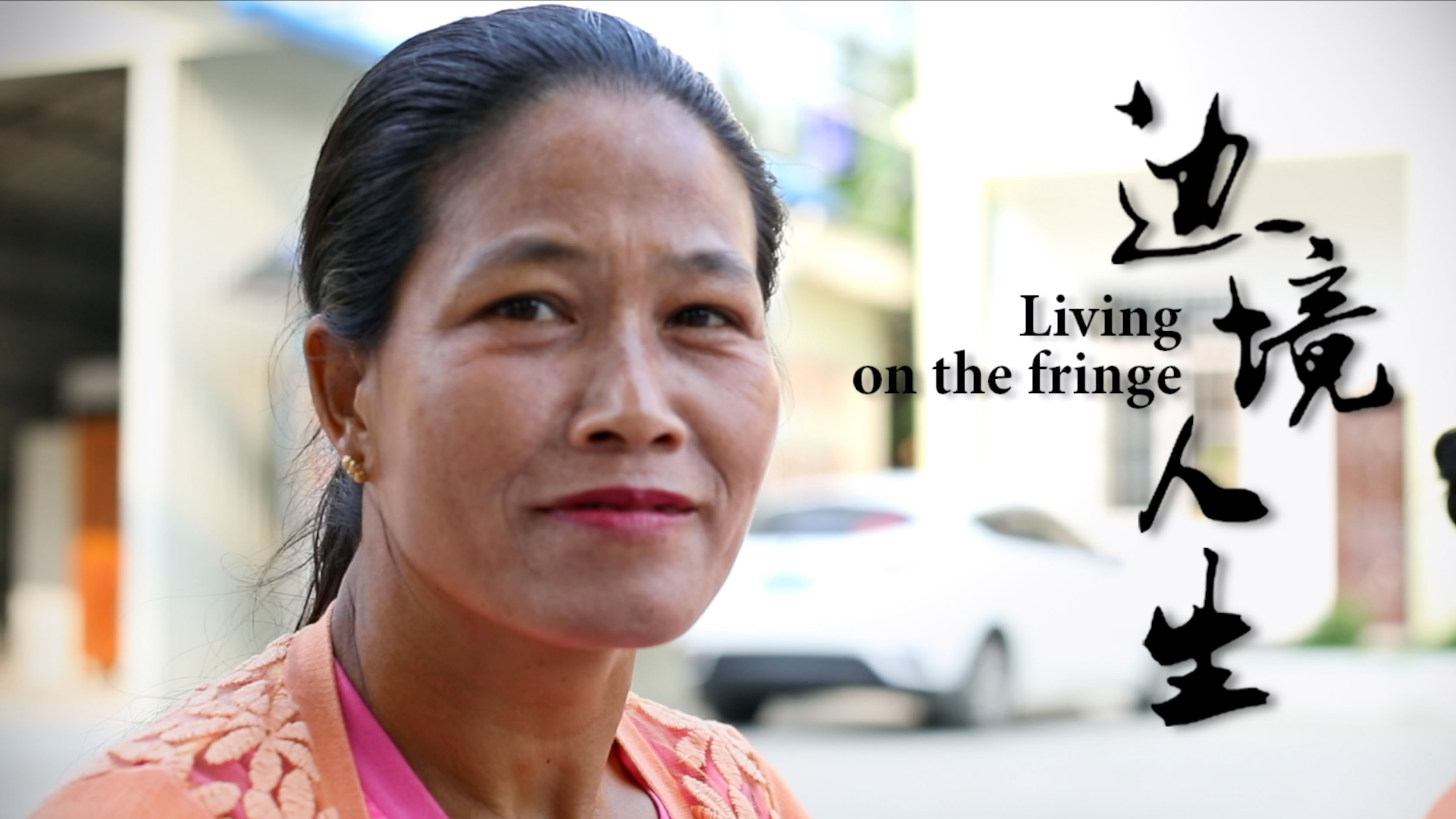
Hamben was born in northeast Myanmar’s Shan State. Nearly 20 years ago, she was married to a Chinese man from the other side of the border, not too far away from her home.
Looking back, Hamben seems very relaxed. “They (referring to her parents) told me about the arrangement, so I went.”
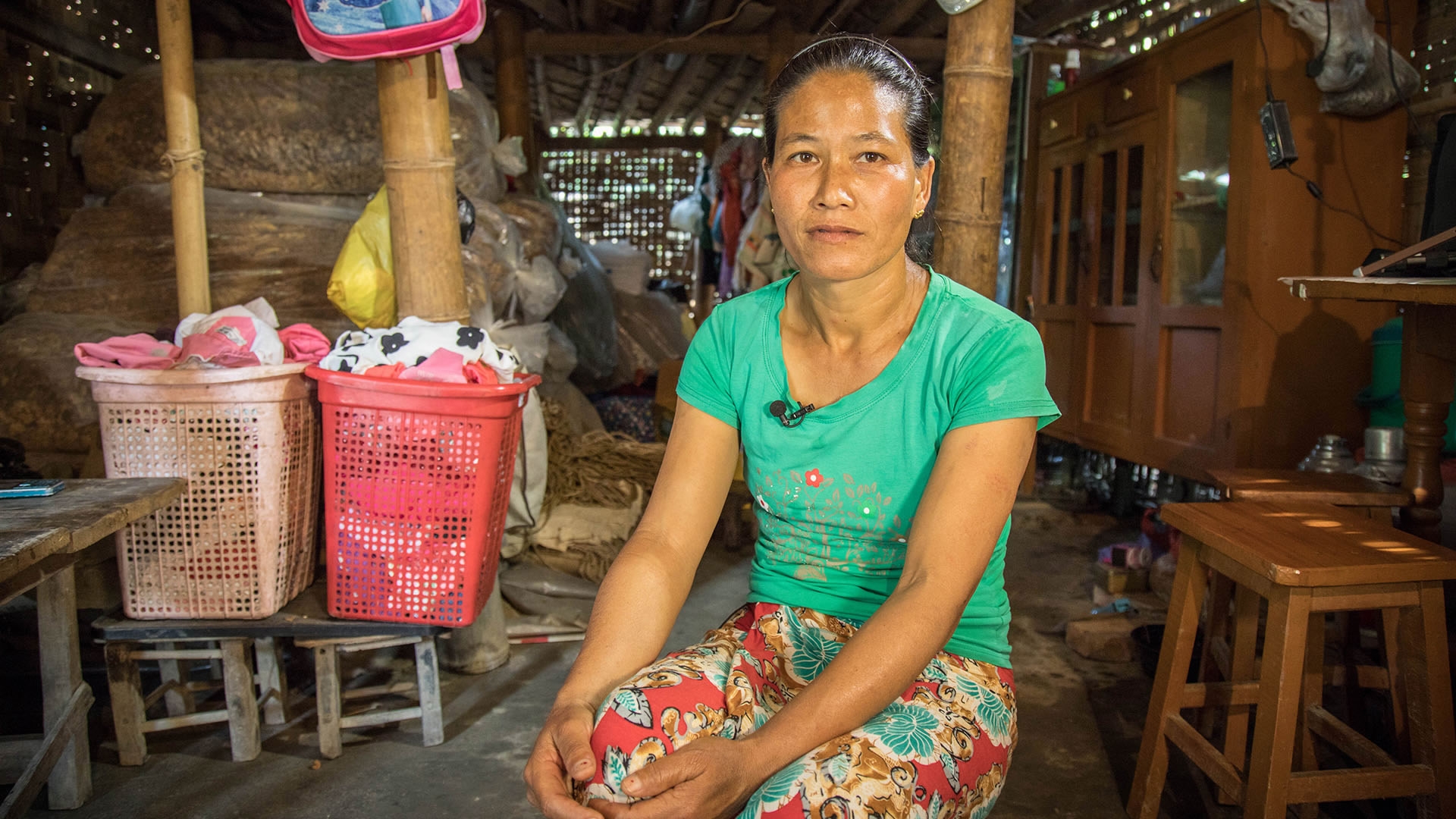
Hamben has two daughters at school and makes a living by growing aromatic tobacco. (CGTN Photo)
Hamben has two daughters at school and makes a living by growing aromatic tobacco. (CGTN Photo)
Her family wanted to keep her safe from the armed conflict in Myanmar that had been ravaging the country for decades.
The fighting is still going on to this day, with at least a dozen different armed rebel groups active. Some have described it as the world’s longest-running civil war.
For many like Hamben, southwest China’s Yunnan Province is a safe haven. Not only because it's easily accessible, but also because the local people there speak the same language.
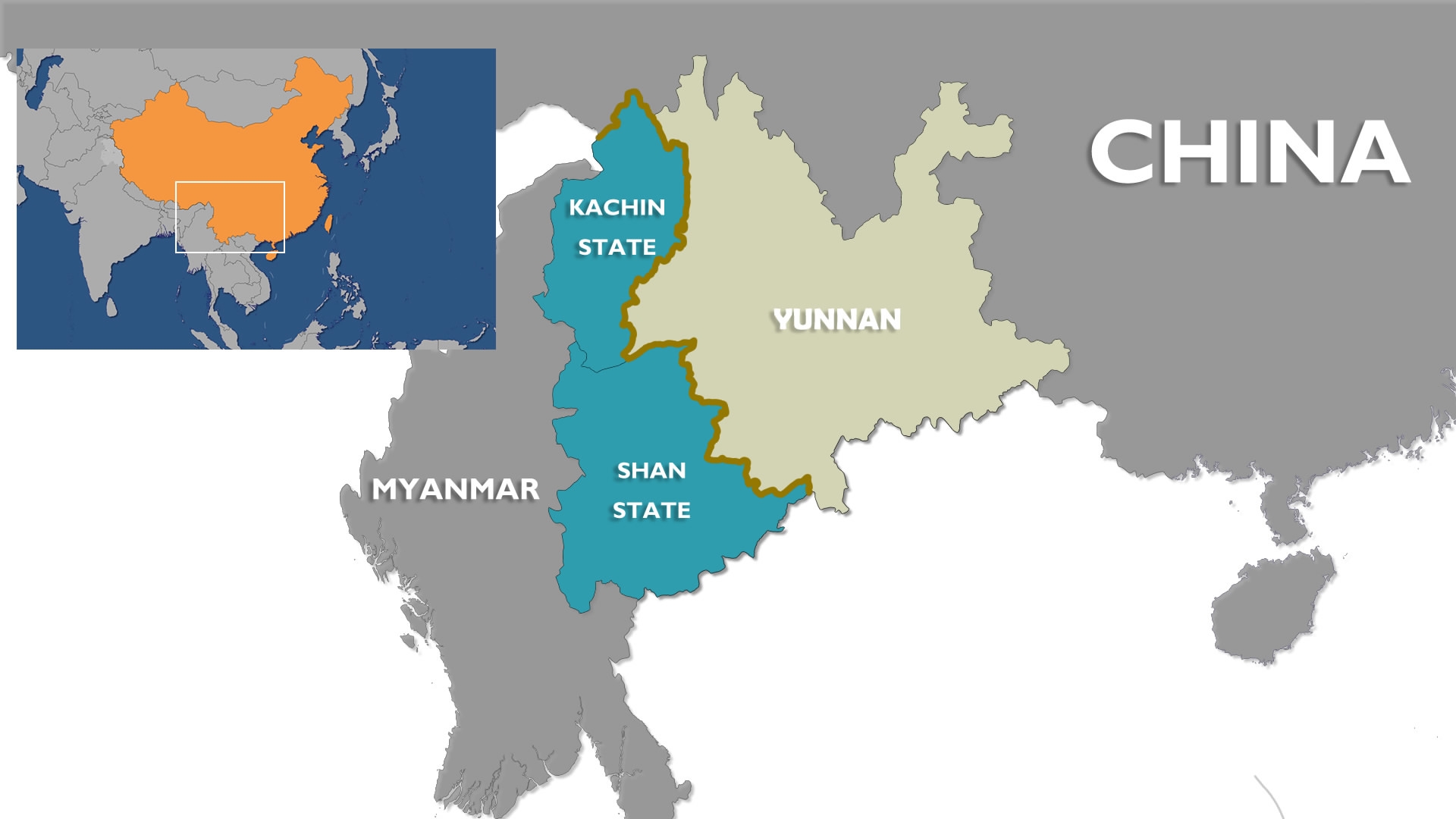
During the conflicts earlier this year, as many as 20,000 refugees have crossed the border into Chinese territory. (CGTN Image)
During the conflicts earlier this year, as many as 20,000 refugees have crossed the border into Chinese territory. (CGTN Image)
Over the years, more and more women from Myanmar have come to China and settled down through marriage. But it’s not all smooth sailing after they arrive.
Although their marriages are usually certified, these women still can’t gain Chinese citizenship. Without proper identification, they cannot enjoy the same social benefits as their husbands or children.
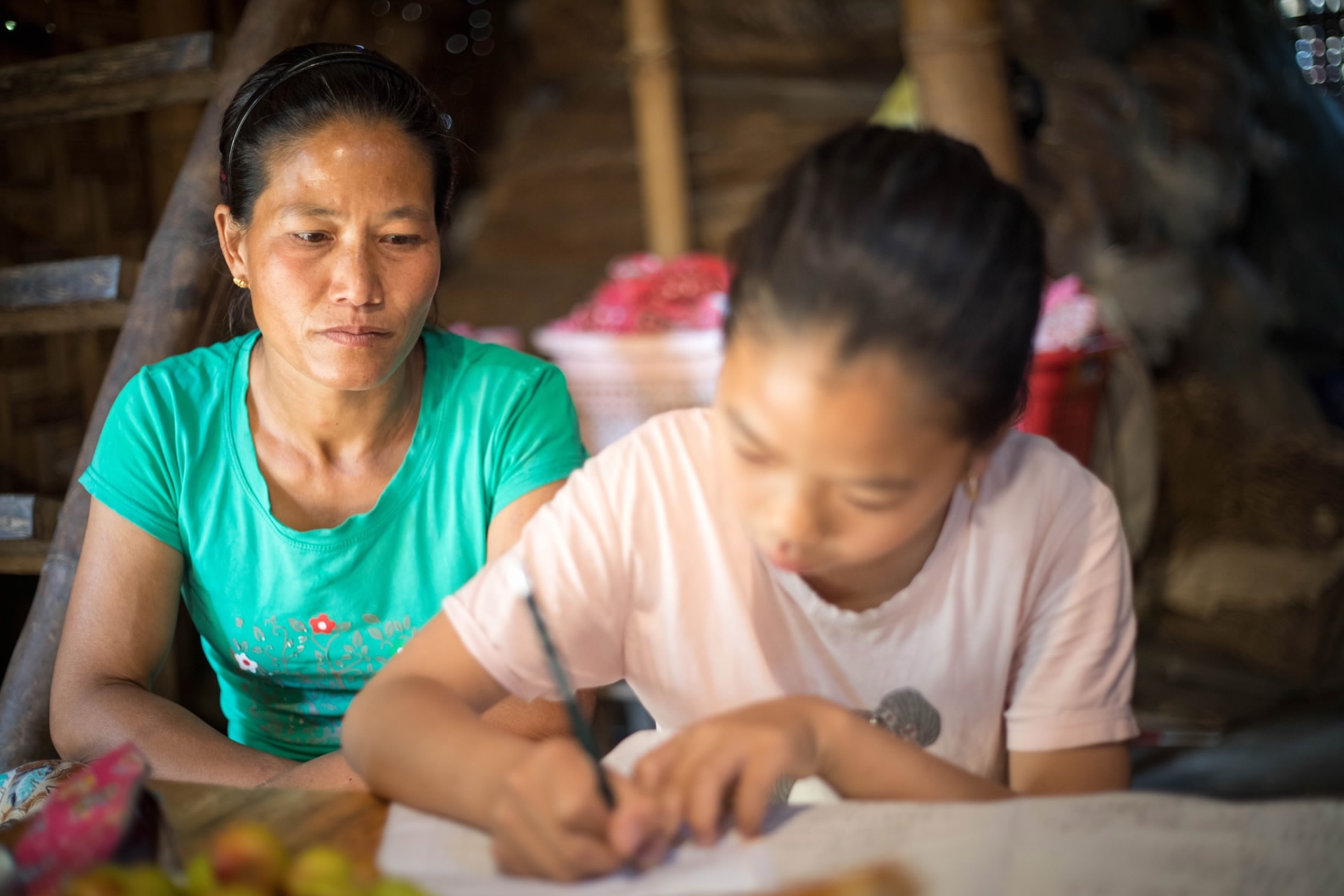
Hamben and her younger daughter. (CGTN Photo)
Hamben and her younger daughter. (CGTN Photo)
After her husband died of grave illness last year, Hamben struggles to make enough money for her two daughters to continue their studies at school. But despite finding it hard to make ends meet, for her, this still beats staying in Myanmar.
“I don’t want to go back, and always worry about running away from war,” she says. “My relatives escape to China every time war breaks out, it’s like running away from Japanese invaders during World War II.”
To help them and other underprivileged families near the border area, the Chinese Ministry of Civil Affairs has teamed up with UNICEF and trained 80 social workers to be stationed in remote villages. Rwiyen was a teacher at the village school before joining the program. She helped Hamben’s family apply for government subsidies. Now she helps apply for school allowances on behalf of Hamben’s daughters.
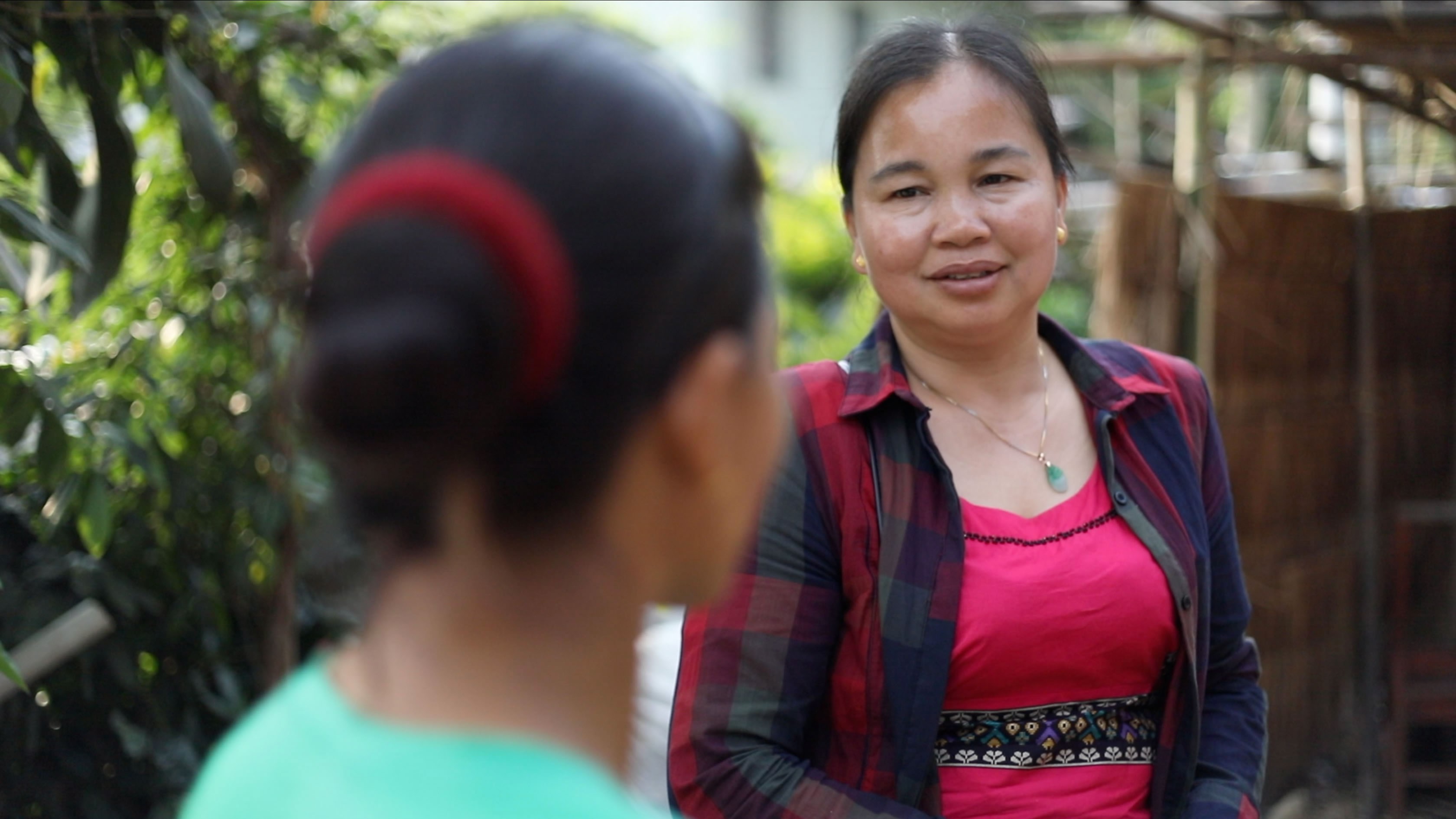
Rwiyen (right) has been a social worker in the village for six years. (CGTN Photo)
Rwiyen (right) has been a social worker in the village for six years. (CGTN Photo)
As part of the program, Rwiyen also organizes regular workshops that teach mothers how to better protect their children from child predators and other potential dangers. But during these seminars, she rarely speaks Mandarin.

Rwiyen giving a lecture on child protection to mothers in the village. (CGTN Photo)
Rwiyen giving a lecture on child protection to mothers in the village. (CGTN Photo)
“I tried to [speak Mandarin], but I always had to translate. So, I speak Dai language now,” Rwiyen explains. “More than 90 percent of the attendees are from Myanmar.”
As a result of China’s rapid urbanization, most of the young people from Rwiyen’s village left for the big cities, leaving a population gap in the village.
Rwiyen thinks that’s also one of the reasons why most of the young wives in the village are from Myanmar.
“In most cases, young women in our village will not come back,” she says. “They usually get married and settle down in the cities.”
“Most of the young lads in the village marry women from Myanmar, unless they’re really outstanding men.”
The situation in this small border village is a reflection of China’s deep gender imbalance. According to the latest report from the National Bureau of Statistics of China, there are more than 33 million men than women in the country.
While they’re busy searching for love, Hamben has already found peace and hope in her Chinese home.
“I just hope my two daughters can do well at school. They're good kids, I hope they can enjoy good lives when they grow up."
Related stories
Refugees of Myanmar conflict cross into China in their thousands
Myanmar conflict: Refugee camps stretched as residents flee violence

SITEMAP
Copyright © 2018 CGTN. Beijing ICP prepared NO.16065310-3
Copyright © 2018 CGTN. Beijing ICP prepared NO.16065310-3